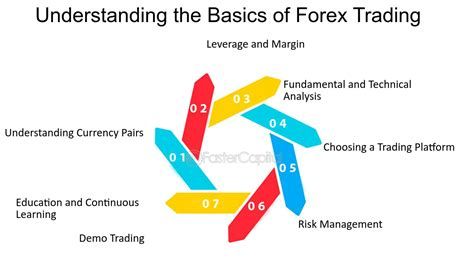Why You Should Invest In Real Estate

Futureincomes.site Assalamualaikum This Second time to share insights about Property. Writings That Elevate Property Why You Should Invest In Real Estate Come on
"Real estate investment: why is investing in real estate gaining immense popularity?
The advantages of investing in real estate are numerous. One of them at least should be the guarantee of reasonably good returns. Even without much effort, real estate does not depreciate in its value in most instances, hence there are chances that revenues may appreciate in value, making the investment fruitful in the long run.
Moreover, real estate properties offer the capability of consistently generating cash flow. Investment portfolios can also be protected against unfavourable market conditions by using real estate investing as an alternative.
Additionally, the tax advantages associated with owning real estate, such as the ability to write off mortgage interest or depreciation on the property, make real estate investing appealing. Lastly, there is always an asset for real estate investors because they can see and touch it, thus providing them with a sense of comfort and control over their investments.
Retaining Wealth and Creating New Through Real Estate Investments
For strong real estate investing returns, investors should forget about hasty acquisitions. Taking the first opportunity that presents itself without considerable thought will most likely lead to the regrettable decision of investing in negative cash flow properties. Time is of the essence here; do not hurry for what more often than not will yield very slim rewards or, worse, negative due diligence. There are risks; however, no investment is completely without risk. Nonetheless, positive attributes will always dominate the negative attributes concerning real estate. Every single investment with such amazing returns must have at least some form of risks attached to it; therefore, the safest and least risky way of building wealth should be for real estate investors to look mainstream and not corner.
In addition, there are tax advantages that accompany owning real estate that makes it even more favourable as a long-term option for creating wealth. Real estate investments place individuals in a position where, with the right purchase, good property management, and knowledge of the markets, their long-term financial goals can be met.
Real Estate: Not Just Real Estate, But A Sound Investment Alternative
Real estate is, for a beginner, an investment worth taking, especially for those who wish to have a safe and secure asset at all times. For returns that are secured in the long run and for cash flows through investments in rentals, real estate is secure and can be seen as an investment.
Unlike other kinds of investment, real estate has a lower risk of sudden swings in value and can bring serenity to the investors. Moreover, real estate investments can serve as protection against inflation because, in most instances, land values and rental returns rise as the cost of living increases.
Furthermore, there is increasing pressure for new housing units and commercial real estate, which makes real estate a potential and definite investment for wealth builders in the future.
Real Estate Investment: Overview
The real estate business has become very popular now a days especially for those individuals who desire to earn a sufficient amount of wealth and to secure themselves financially. This is particularly centered around the purchasing of properties. The properties may be purchased so that they can be rented out, or the purpose could be to sell the properties at a greater price in the future.
One of the advantages of investing in real estate is that it can be held to build wealth over a long period of time. Unlike some other forms of investments such as stocks and bonds, real estate investment has been reliable over the ages and returns can be expected in the long run.
One more benefit of these assets is that they are tangible and physical in form which makes them appealing to the investors. However, there are also risks related to this business as well.
The profitability of an investment can be affected due to changes in the market, costs and efforts associated with the property maintenance, and even the management of the property. For any investor who wants to risk their money in to this property sector it is advised that a lot of research is done, considering the area of focus, and the associated risks and their possible rewards too.
Real estate can also prove to be a good field for investment for people who have the ability to do thorough market research and go through the various investment possibilities with a critical eye. Investing in real estate with proper strategies and planning can definitely turn out to be an asset when it comes to wealth creation and financial goals.
Therefore, before investing in real estate, one must first learn the trade, observe others who have experience in such investments, or consult specialists and think from a long-term perspective.
Real Estate and Its Others Investment Options
In the context of investment portfolios, residential real estate takes its rightful place as a tangible property capable of providing both stability and an increase in the number of investments. Upon death of the individual, the investment can be passed down, unlike in stocks or bonds where there is no such physical embodiment.
Furthermore, the property can include passive income through the provision of rent therefore, real estate as an investment is viewed as having a lot of long-term benefits. Other investment options including shares, unit trusts offer advantages of liquidity and wider range of investment management.
Real estate, being quite active, may be a good way of hedging an inflation risk while at the same time delivering significant returns over a period of time. In the end, the choice of investment between real estate and other alternatives is a matter of personal choice, the risks an individual can bear, and the hope of money within a time frame.
Real Estate Investment: Key Factors to Consider
You’re right to consider real estate investments because that business can obviously bear fruits, but before indulging oneself, it would be wise to consider a partnership with a professional because there are key factors that one must consider in advance, first, the location of the property for investment, is key in this scenario.It's advisable to pick areas where there are lots of areas for development and greater demand. Study the area’s trends, market development and access with regards to infrastructure.
Moving on, appraise the property and the opportunities for capital appreciation. Its age, upkeep and future expected repairs and makeovers. Make an estimate of the return on investment after expenditure such as property taxes and insurance. Now, what are the available financing opportunities.
Look at the mortgage rates available, terms and down payment required. It is advisable to consult friends for assistance when in the assessment of one’s financial capability as well as to know how best to fund the proposition. Above all, the risk of the investment and return on the investment, is also important to understand.
Rental yields or capital appreciation are generated from investing in real estate. Any investment is supported by and to effective and well documented within the market dynamics, demand for rental, and vacancy rates. Last but not least, long-term goals and the intended exit plans should be outlined.
Establish whether you like to bring in quick profits or you intend to accumulate wealth over the long term. Prepare yourself for unexpected changes and have an exit strategy ready in case your circumstances change. By addressing these primary concerns in a reasonable manner, you will be able to make better decisions and increase the likelihood of your success when it comes to real estate investment.
In What Ways Real Estate Investment Can Generate Passive Income
Real estate investment has come out as one of the most effective practices of earning passive income. Investing in real estate, especially with the proper techniques, may yield a consistent return without any active participation on the part of the investor.
This can be done by investing in rental properties. Investors can purchase either residential or commercial properties, lease them out and derive monthly income. Furthermore, with time, there is the possibility of capital appreciation as the prices of properties tend to grow.
Another option is investing in real estate investment trusts (REITs) that enable investors to write a pool their money and put in a varied collection of properties, hence sharing the risks and returns. This allows investing in real estate without being directly involved in the investment, hence effectively having the hassle of managing the property.
Generally, real estate investment can be beneficial in earning passive income and for wealth creation.
Real Estate Investment Strategies for the ‘Newbie’
If you are a beginner looking to make good investments, real estate can be a good option. A technique is to begin with single investment, such as rental house or a condominium. This gives the beginners hands-on practical experience in managing a property or dealing with tenants.
An alternative is to use REITs that give an opportunity to put money into a portfolio of properties. Further, buy and hold strategies are buying undervalued houses, improving and flipping at a profit.
For real estate investments, relatively lower amounts are required for crowdfunding programs which the investors can also consider. In the end, however, excessive planning and experience of other people are required for successful real estate investment as everything is going to have it’s time and setting.
Real Estate Investment: The Risks and the Rewards
Most people want to invest but do not because it is a risk and uncertainty involved. Growing wealth may appear to be an easy task for some as they may for instance sell their house. However, it is necessary to assess the risks and potential rewards for this activity in the first place. One of the major risk factors is the fluctuation of the market.
And again, here is where the problems come in. It is the nature of property that it is a form of asset that can appreciate, but there is always the risk that property values could decline or remain stagnant. Investment in properties always requires additional costs in terms of maintenance.
A major disadvantage of real estate investing is that it is illiquid. Older properties tend to have a higher rental yield than brand new ones, and older properties tend to appreciate more slowly than new construction. Investors have to make these pays out only during the maintenance period without getting any cash rewards in the shape of dividends or rental payments.
Investing in Real Estate: A Way To Balance Your Portfolio
Real estate investing is a popular method considering how it balances out a portfolio. It can appreciate over time and also act as an inflation shield. Investing in real estate gives the opportunity to earn through lease amounts or increase in value of the real estate assets in time.
One of the positives of investing in real estate is earning passive income through monthly rentals. By leasing out short houses or store spaces, passive income can be obtained through the unfortunate event of rental fees being decreased.
Such income can help one in extending the income obtained from other sources and maintain a good financial balance. In addition, there are opportunities to earn from change in price of the real estate investment as well. Most of the time, with little changes in the economy, real estate prices go up especially in highly populated regions.
If in the future you feel like selling your investment then this increase in price shall help obtain massive returns. However, there is something to keep in mind, the real estate market is not always on the up, properties can also depreciate.
Another encouraging factor of real estate investing is availing of tax breaks. Usually, any rental income is taxed, but it’s a normal case for real estate investors to utilize numerous tax deductions and credits.
Such tax advantages do assist in getting back some of the expenses incurred in acquiring and holding the properties hence reducing one’s overall tax obligation. However, there are also downsides to real estate investment. Such assets can lose value over time, which can present a problem when looking to sell during a slump in the market.
Moreover, having rental properties may be more
involved in that one may have to deal with tenants, repairs and other property issues. In order to limit these risks, You should take the time to research and carry out proper investigation before putting your money into real estate. June 2024.
You should consider items including the return on investment potential, the level of demand for rentals, the condition of the property and its location. It may be good to purse sense advice from people like realtors or financial planners who will be in a position to tailor their response regarding the objectives and the facts of the case.
To summarize, real estate can be a perfect investment to expand your portfolio. It has great possibilities for income earnings, appreciation of capital and tax incentives. Of course the risks that come with real estate investment are a concern and as such, an individual should always be prepared to make rational choices that are in line with their objectives and the risk they are willing to take.
Thus I have explained why you should invest in real estate in detail in property I hope you feel enlightened after reading this article develop your potential and maintain mental health. Help spread it by sharing this post. see other articles below.










